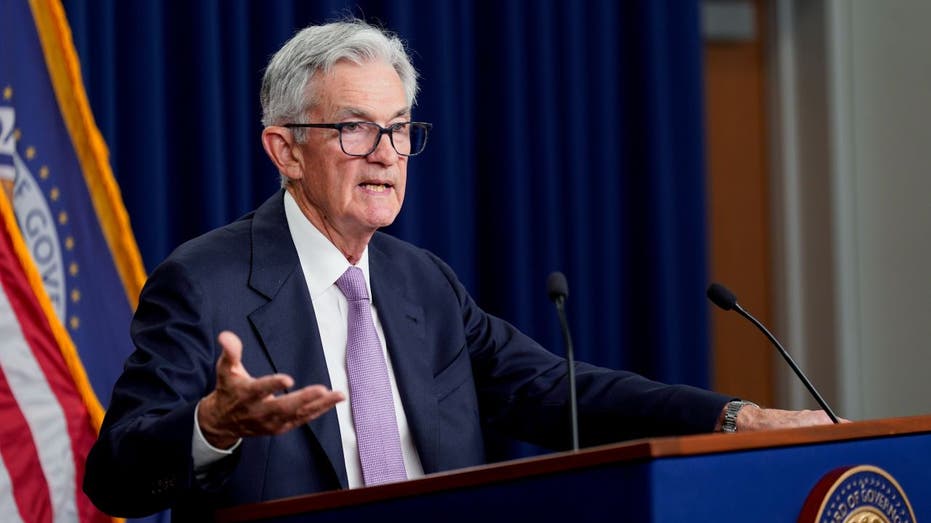US economy grew 3% in the second quarter, in line with expectations
Economy's 3% annual growth in the second quarter comes as first-quarter growth was revised upward
Strength of US economy continues to shine globally: Lynn Martin
NYSE President Lynn Martin discusses whether Trump or Harris' economic plan is better for markets on ‘Cavuto: Coast to Coast.’
The U.S. economy grew at a 3% annual rate in the second quarter, in line with economists' expectations, according to new data from the Commerce Department's Bureau of Economic Analysis.
Economists polled by LSEG projected an annual growth rate of 3% in the second quarter, after the second advance read came in at 2.8% in July.
The report also revised first-quarter GDP growth to 1.6%, up from 1.4% in the prior reading. That comes after the economy grew 3.4% in the fourth quarter of 2023.
Stronger growth in the second quarter compared to the first quarter was primarily due to an acceleration in consumer spending and an increase in business investment, offset by a downturn in residential investment.
SHOPPERS COULD BRACE FOR RISING PRICES IF PORT WORKERS STRIKE, EXPERT SAYS

The U.S. economy grew at an annual rate of 3% in the second quarter, the Commerce Department announced. (Qian Weizhong/VCG via Getty Images / Getty Images)
Consumer spending, which accounts for about two-thirds of GDP, was up 2.8% in the second quarter, higher than the 1.9% reading in the first quarter, amid an uptick in spending on goods.
Business investment rose 8.3% in the second quarter, led by nonresidential investment — particularly on equipment — while residential investment declined 2.8%.
The report showed increases in personal income that were revised upward from the previous estimate. Current-dollar personal income was up $315.7 billion, revised up $82.1 billion from the prior estimate. Disposable personal income was up by $260.4 billion, or 5%, in the second quarter — an upward revision of $77.3 billion from the prior estimate.
FEDERAL RESERVE CUTS INTEREST RATES BY HALF-POINT; FIRST RATE REDUCTION IN FOUR YEARS
Personal saving was $1.13 trillion in the second quarter, an upward revision of $74.3 billion from the prior estimate, while the personal saving rate was 5.2% — down slightly from 5.4% in the revised first quarter reading.
The gap between GDP and gross domestic income (GDI), which measures the sum of incomes earned and costs incurred in the production of GDP, narrowed in the second quarter. The two measurements are conceptually equal, but in practice they differ because of using different source data. GDI increased 3.4% in the second quarter after an upward revision of 2.1 percentage points from the prior estimate.
FED'S POWELL: POLICYMAKERS NOTED ‘ARTIFICIALLY HIGH’ JOBS DATA, REVISIONS IN RATE CUT DECISION

Federal Reserve Chair Jerome Powell announced the first interest rate cut in four years last week amid progress in the fight against inflation. (Al Drago/Bloomberg via Getty Images / Getty Images)
Michael Pearce, deputy chief economist at Oxford Economics, said the GDP revisions show the U.S. economy's recovery is "built on strong foundations."
"The revisions only strengthen our conviction that the U.S. economy will continue to expand at a decent pace over the coming year, which suggests labor market conditions are unlikely to deteriorate markedly from here," Pearce said. "We think that will push Fed officials toward a more gradual series of interest rate cuts in the quarters ahead."
GET FOX BUSINESS ON THE GO BY CLICKING HERE
The Federal Reserve announced the first interest rate cuts in four years after its policy meeting last week, lowering the benchmark federal funds rate to a range of 4.75% to 5%.




















